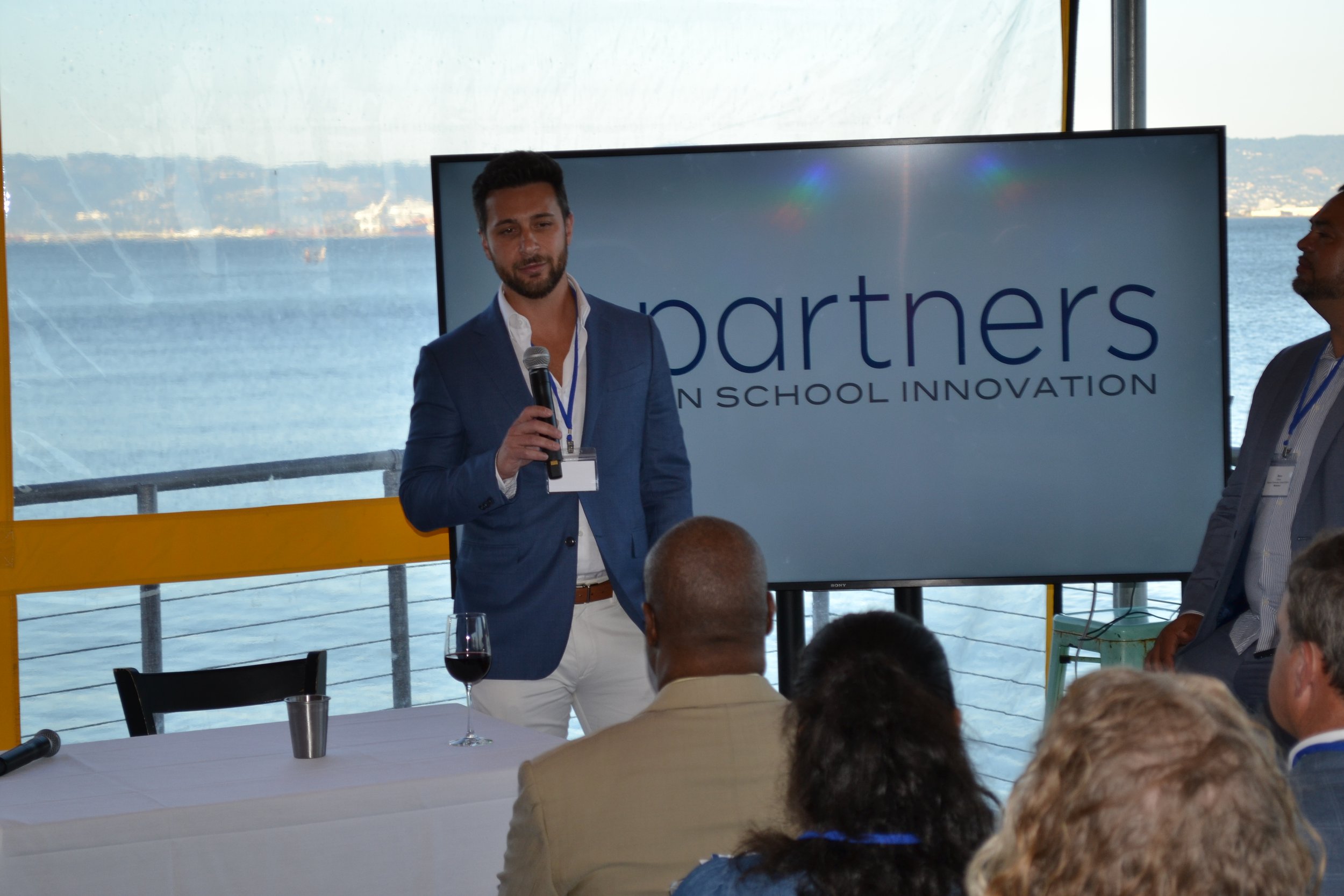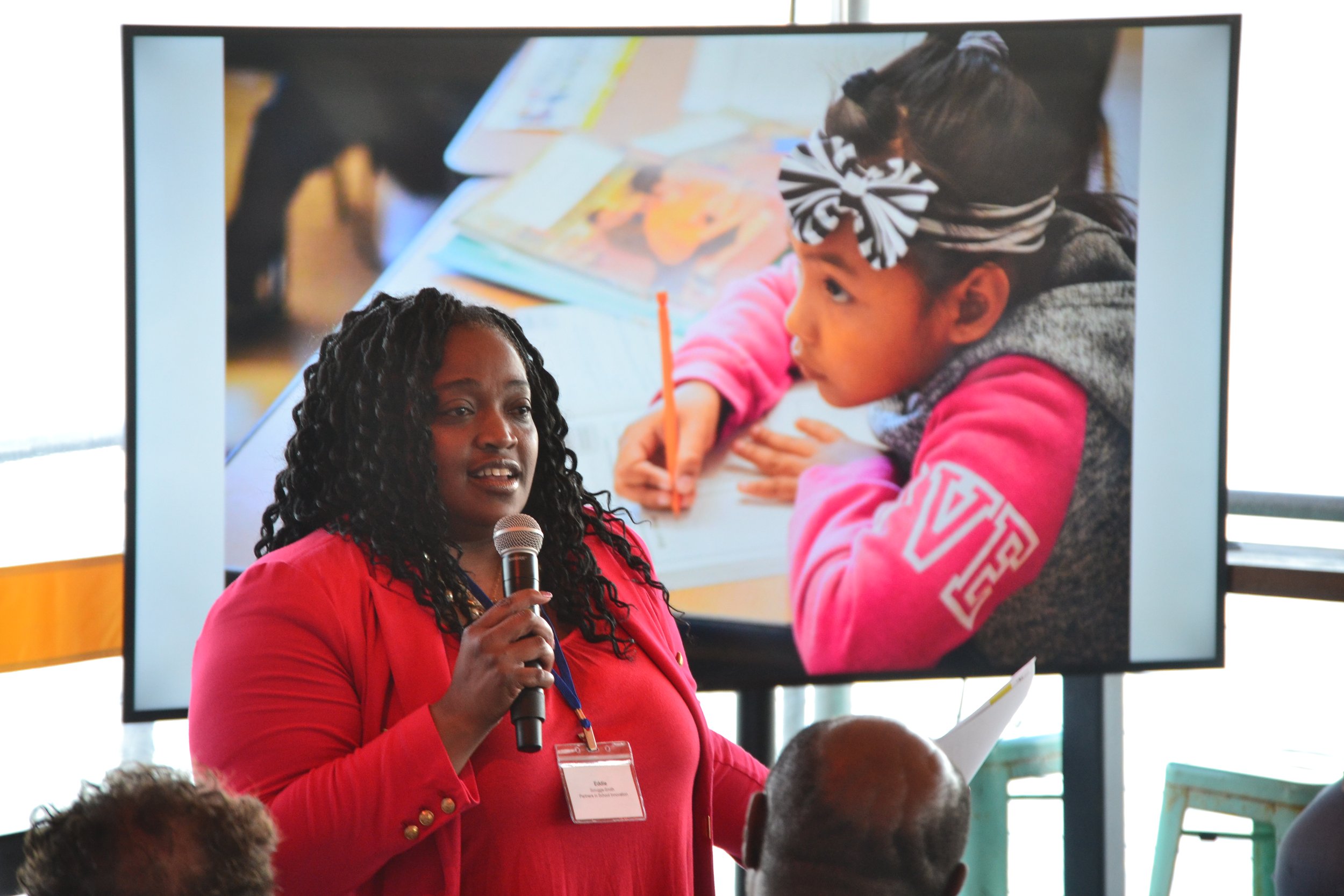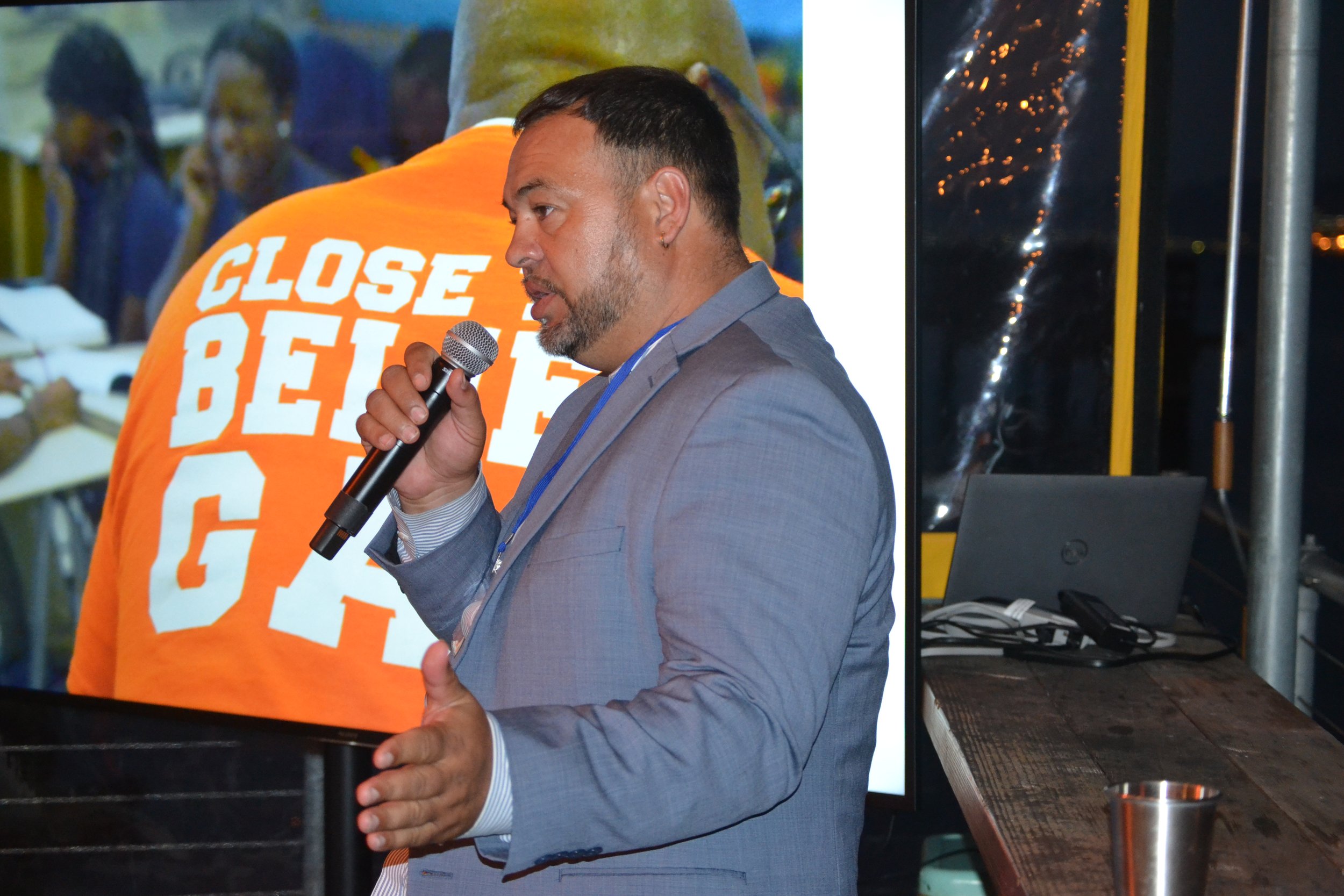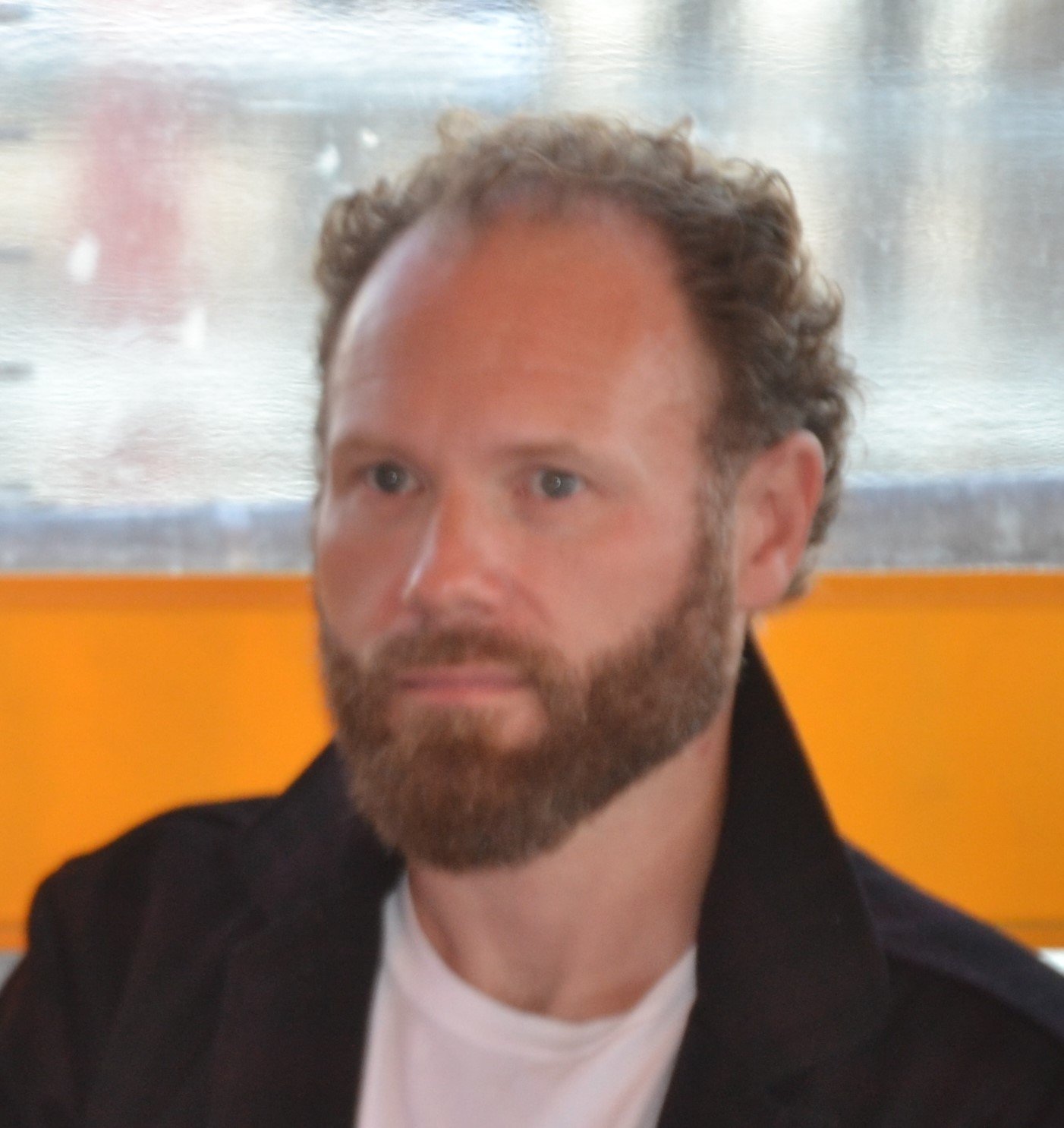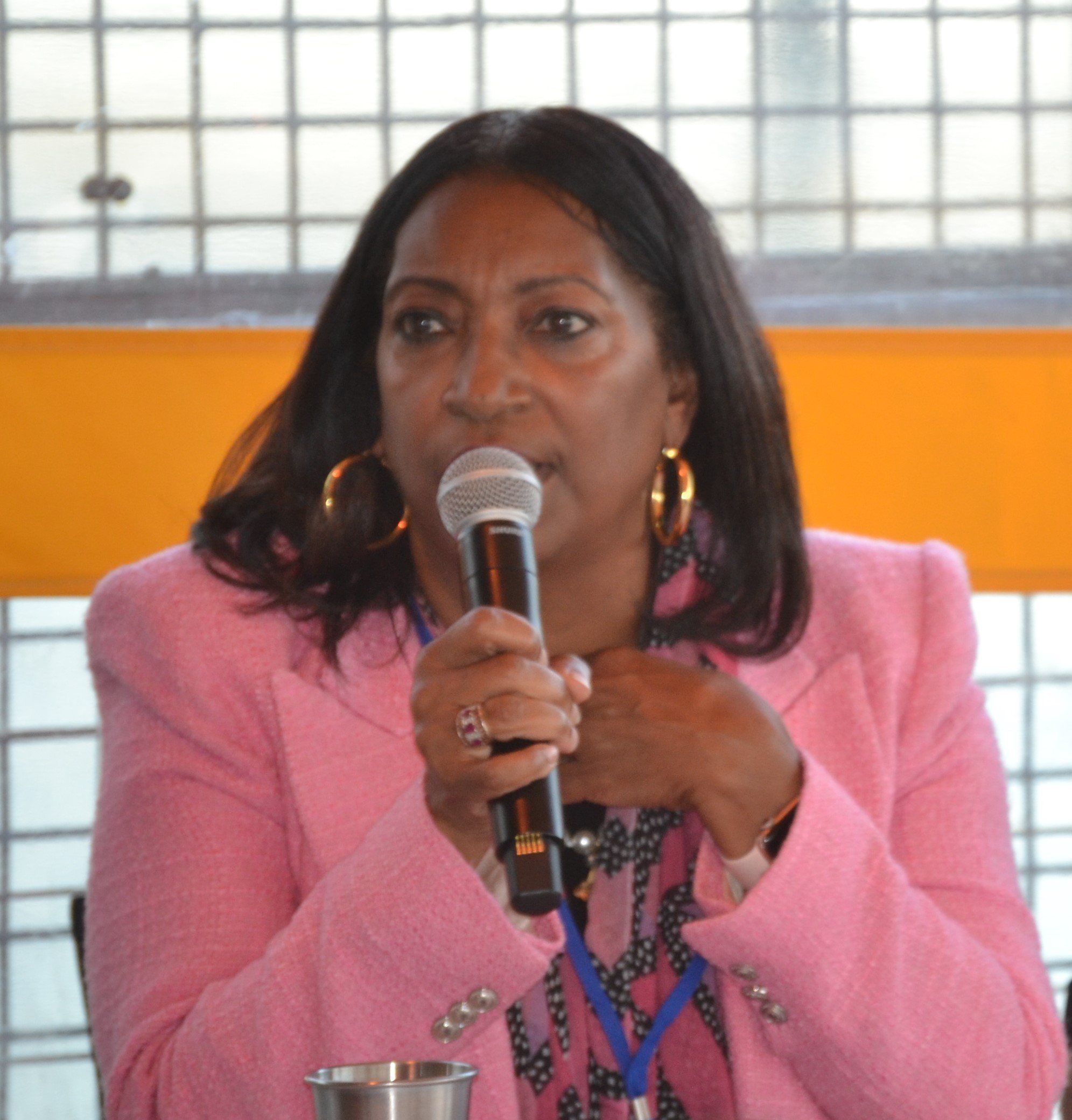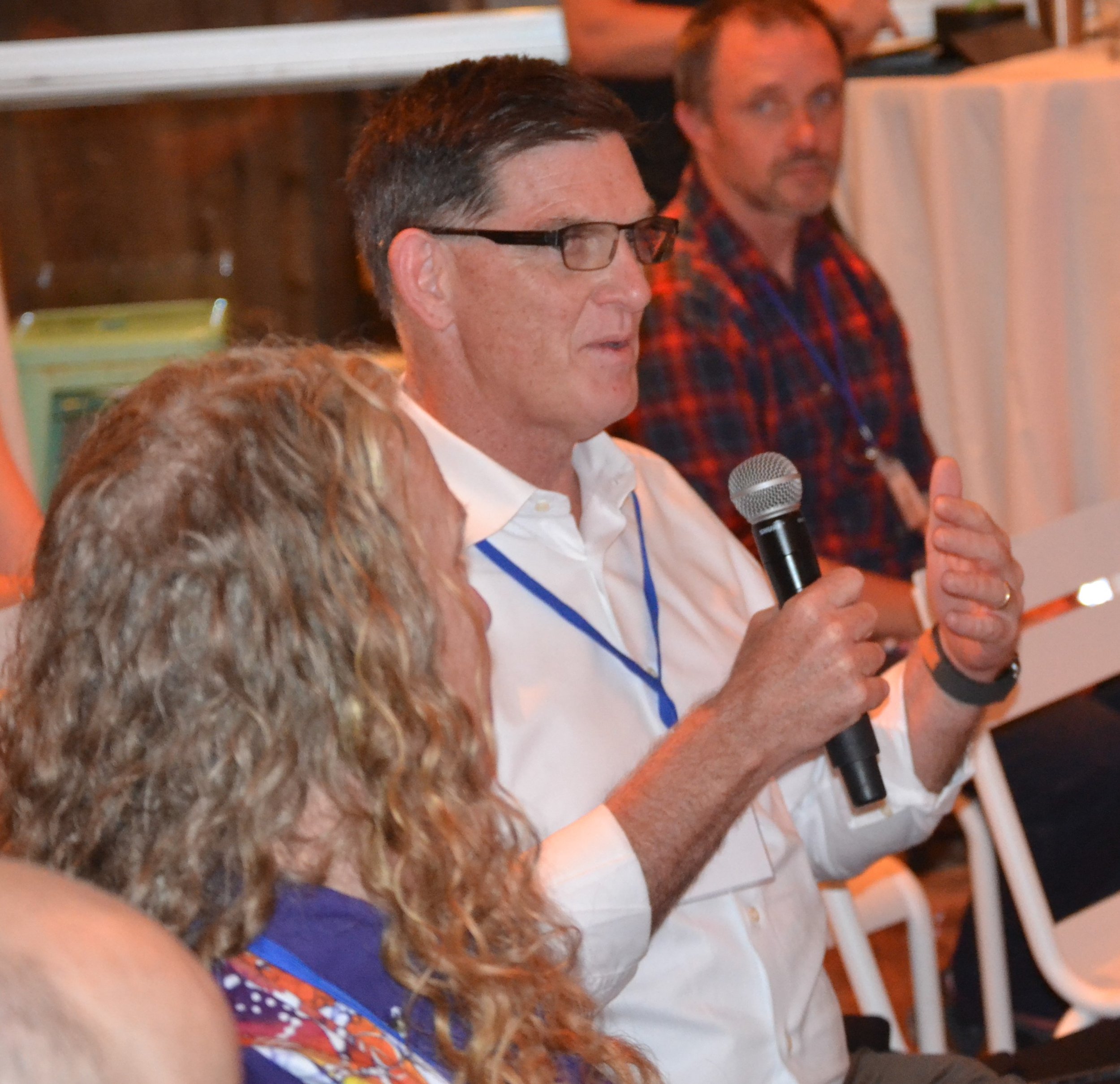Celebrating “Change Agents” in San Francisco
Friends of Partners in School Innovation joined several board and staff members in San Francisco in August to celebrate change agents in education. The main feature of the event was a panel discussion on what it takes to be a change leader in American public schools today.
Zack Barulich, who recently joined the Partners board, served as host for the evening and explained why he wanted to be a part of the organization:
“While Partners’ main goal is to assist our most vulnerable students and ensure they have access to the best educational tools possible, the organization’s method is what I find truly unique. Partners recognizes that to change our schools to better serve children, you don’t need to re-create the wheel; you can achieve it within the existing structures as long as you have cooperation from every level of the system. From the superintendent to the kindergarten teacher, they need to believe in what Partners is doing, and once you have that support, the desired results are not only possible but sustainable on a long-term basis.”
Partners CEO Derek Mitchell talked about the importance of public education in preparing the next generation to tackle our immense challenges:
“We need our children to be more than we have ever been. We need them to be better stewards of air, land, and sea. They will have to work across differences and fuse ancient and new ways of knowing. They will need to be less impacted by the prejudices and biases that plagued our parents and have held us all back for so long because they won’t have the time and energy to waste on such nonsense. We need them to think more creatively and adaptively, putting themselves in the center of community, at the center of the natural world and not apart from it or above it. We need them to be able to discern the difference between fact and strongly held beliefs. We need them to be more trusting, and more trustworthy than we have been, more accepting of differing viewpoints. But most of all, they need to know how to learn and love to learn.”
Eddie Scruggs Smith, the organization’s Directing Improvement Partner, then took the stage to introduce the panel discussion’s moderator. But first, she praised her teammates:
“I’ve worked with outstanding educators all over the Bay Area, and my colleagues here at Partners are among the very best.”
Panel moderator Itoco Garcia, who serves as the superintendent of the Canyon Elementary School District, introduced the panel:
Justin Cohen, author of Change Agents: Transforming Schools from the Ground Up
Michael Essien, Executive Director of Community Schools & Partnerships for the Alameda County Office of Education
Hansa Kaipa, Equity Coach for SF-CESS
Tamitrice Rice Mitchell, Associate Superintendent for San Francisco Unified School District
The panelists then discussed what it takes to be a change agent in public education in America today. Specific questions they took up included:
How do you incorporate Partners’ continuous-improvement method — the results-oriented cycle of inquiry (ROCI) — in your work?
How can principals and central office staff be instructional leaders who help ensure that students who are furthest from success get the instruction they need?
In these challenging times, when burnout and turnover are on the rise, how do we help keep educators on the job and doing the important work of teaching in our most challenged communities?
Chapter 8 of Change Agents is titled, “Leading with Love.” What does that mean to you? How are you leading with love in your work?
Below are some highlights from the discussion:
“Partners’ continuous-improvement method – the results oriented cycle of inquiry (ROCI) – can be summed up as habit-building. You focus on a problem that you have some control over, gather a group of people you trust, plan a manageable approach to solving the problem, and begin taking action. Then the group gets back together periodically and asks ‘what happened?’ If it went well, commit to re-doing it. If it didn’t go well, discuss why, but also keep trying and adjusting your approach because the vast majority of problems don’t get solved the first time you try. Then lather, rinse, repeat.” - Justin Cohen
“When we think about serving kids who are furthest from success, differentiating instruction is key. If we’re not talking about differentiation, we’re just checking boxes and failing kids so we can talk about it again next year.” - Michael Essien
“The key to continuous improvement is reflection. It’s very difficult for people in schools to do that on their own. Coaches can help educators make space and time to reflect. The key to liberating learning is unlocking time.” - Hansa Kaipa
“When I hear that being a change agent means leading with love, I think, ‘how do you not lead with love?’ For years, I was a principal in the same neighborhood where I grew up. Every day I went to work, I saw mirrors of me. If I didn’t love the students and their families, then I didn’t love myself and my community.” - Tamitrice Rice Mitchell
We then invited audience members to pose questions to the panel
Questions touched on a range of topics, from sustainability of school-transformations, to artificial intelligence, to involving students in continuous-improvement efforts. Scott Sampson, executive director of the California Academy of Sciences, posed the last question: “How do we empower students to tackle the poly-crisis that we face – climate change, social justice, biodiversity, and more?”
Tamitrice called on us to believe in the ability of young students and their families: “We have to ask ourselves: ‘Do we want to empower students? Are we willing to start with kids when they’re three or four years old? Do we believe that children have a voice, or that they are just empty vessels? Do we see ourselves as the only ones capable of contributing, or do we see the students and their families as capable of contributing as well?’”
Clearly, it was a rich discussion, and the staff and board of Partners in School Innovation were honored to celebrate change agents in public education and inspired to continue pouring into some of the most challenged communities in the country in the fight for educational equity.
Post-event reflections
On the day after the panel discussion, we asked Justin Cohen what he thought the takeaways were for San Francisco educators and residents in particular. Here is his response:

